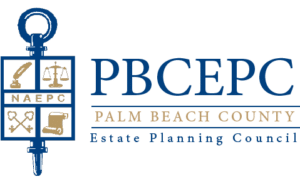
By Janet Shamblin
Key Private Bank
Death or incapacity can create an avalanche of emotions and stress on all members of a family. That’s why it’s so important to have an estate plan in place. Even if your current estate is non-taxable, an estate plan addresses other important family matters and clearly defines your wishes.
There are many reason – beyond tax issues – for individuals and families to create an estate plan. Consider the following questions:
- Do I want input on where I go and who would take care of me if I become incapacitated?
- Do I want input on who would take care of my minor children, and how the funds would be managed for them?
- Do I want my assets to go to the people or organization I choose when I die?
- Do I want to limit the amount of resources that would be available or would have to be used to provide for my long-term care?
- Do I want to avoid the costs, time and public exposure that probate exposes my family to?
Let’s take a more in-depth look at some of the non-tax reasons an individual or family would want to create an estate plan.
Family issues
A properly structured estate plan can help provide peace of mind to family members by simply knowing what you want. A good estate plan addresses unique assets, such as a family farm, business or vacation home, or other legacies or heirlooms. Increasingly, this includes digital assets, such as a Facebook page or blog.
The estate plan also addresses unique family situations, such as the intricacies of second marriages, potential future divorce of children, addiction and irresponsibility, and physical and mental disability. Trust provisions can
be included to protect beneficiaries from themselves, their creditors, and former or current spouses, and to insure that special-needs beneficiaries aren’t unintentionally disqualified from crucial government benefits due to an inheritance.
Incapacity
Estate planning involves a dialogue and the necessary documents to spell out who will make decisions for you following disability or death. These documents will include Durable General Powers of Attorney, Health Care Directives, and a Living Will.
It is vital to appoint a person to make important decisions during difficult times—one who will do so in a timely manner. It is often best if the agent under your Health Care Power of Attorney lives close to you in order to effectively act in this capacity.
If leaving an estate or legacy is important to you, different strategies can be implemented to help ensure that it will not be depleted during your lifetime. This may include Long- Term Care Insurance, Life Insurance (individual or second to die), irrevocable trusts, and/or immediate gifts (directly or through Irrevocable Life Insurance Trusts).
Business succession
In the case of a family-owned business, it is important to:
- Identify who would take over the business and confirm whether the individual or individuals wish to do so.
- Direct the manner in which non-involved family members are awarded alternate assets of equal value and how the value will be determined.
- Identify any issues limiting the children’s ability to retain the business or existing financial arrangements after the founder’s death.
- Develop an exit strategy if family cannot or does not want to retain ownership, including providing the necessary liquidity if the estate is taxable.
- Put a buy-sell agreement in place if you have a business partner
- Coordinate titling of probate and non-probate assets
Many individuals believe that Transfer on Death (TOD), IRA, and qualified retirement accounts such as 401(k) and 403(b) plans will be addressed through their wills. This is usually not the case. Ownership of these non-probate assets are primarily determined by the beneficiary designation on file.
It is not unusual for these beneficiary designations to be outdated, lack contingent beneficiaries, or simply not reflect the individual’s current situation. They should be updated periodically as part of ongoing financial planning.
Risk management and asset protection
Asset protection planning involves the implementation of strategies that limit an individual’s exposure to lawsuits, divorce, and creditors. This may involve a review of liability and umbrella insurance policies, as well as examining titling and ownership of assets. Strategies may include the use of tenancy by the entireties, trusts or other limited liability entities. Additionally, techniques can be incorporated into the estate plan to protect beneficiaries.
Decedents often leave assets outright to a responsible beneficiary. But outright ownership exposes those assets to any third-party claims against that beneficiary, including lawsuits, bankruptcy, and even claims of the beneficiary’s spouse. Asset protection planning need not limit your intended beneficiaries from the use of your assets. Planning can be done that retains the “good” aspects of ownership without any of the “bad.”
Conclusion
Discussing important family issues with your attorney and wealth management team will give you a clearer picture of your wishes and identify potential problems that may need attention. This would be a good time to draft a letter with information about personal affairs (important account information, digital passwords, trusted advisors’ contact information) or even address ethical and moral values (sometimes called an Ethical Will or a Family Mission Statement) that you wish to impart to the family.
Janet Shamblin, CTFA
Fiduciary Strategist
Senior Vice President
Key Private Bank
3507 Kyoto Gardens Drive, Suite 100
Palm Beach Gardens, FL 33410
561-775-6535
janet_shamblin@keybank.com
As a Fiduciary Strategist for Key Private Bank, Janet proactively advises her clients on sophisticated estate, trust and charitable strategies to address their unique financial objectives and uncover new opportunities to manage and grow wealth.
Janet is a seasoned professional and brings her expertise in trust and estate planning to help clients preserve, protect and plan to pass on their wealth to their family, heirs and the causes most important to them. She helps clients develop customized solutions for their challenges and ensures recommendations are in harmony with their total wealth management plan.
